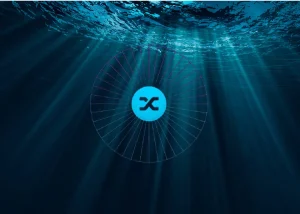Solana(SOL) is an Ethereum-based cryptocurrency that uses proof-of-stake (PoS) to validate transactions. It was created in 2017 and has been gaining traction since then. It has become the sixth most used DeFi platform in value locked.
The blockchain‘s built-in time synchronization mechanism helps the network support 65,000 transactions per second. This makes it one of the fastest blockchains in existence. They also boast that their blockchain is more secure than any other because it uses something called “secure sharding,” which means it can be partitioned into smaller shards without compromising security.
What makes Solana different?
What makes Solana different from other blockchains? For one thing, it is based on a new consensus algorithm called Proof of History (PoH). This algorithm uses a “Merkle DAG” structure to verify historical events and improve transaction throughput.
Another key difference is that the blockchain does not use proof-of-work (PoW) algorithms like Bitcoin or Ethereum do—this means there is no need for miners or mining pools to verify transactions on the network. Instead, nodes are selected by lottery (which means there aren’t any miners). However, they still have an incentive to participate: they can earn rewards for their participation in verifying transactions on the blockchain through PoH mining rewards (which are paid out as tokens).
PoH allows every node in a network to reach consensus without mining, which saves time and energy. It also reduces the amount of hardware needed to power the network because only a small portion of nodes are responsible for verifying each block of transactions. This means less hardware needs to be purchased by users who want access to the network at any given time, reducing costs for everyone involved!
Solana is Ethereum’s growing rival
Solana has been called “a more scalable version of Ethereum” by some experts. It’s been called “the Ethereum killer,” and its team comprises some of the most experienced blockchain engineers in the business.
The blockchain was designed to solve some of the biggest problems with Ethereum, such as scalability and transaction costs. It also hopes to improve upon Ethereum’s security issues.
How does staking work with Solana?
Solana allows users to stake their tokens to validate transactions on their network. The more tokens you stake, the more validation power you have. This makes it so that users who aren’t able to afford expensive hardware can still participate in running the network and earning rewards for doing so.
The Solana token (SOL) has two main functions: it’s used for paying fees on transactions and can be staked to earn rewards from transaction fees. In addition, the token holders can vote on network upgrades using their tokens.
Other benefits available to the token holders only include: Ability to receive discounts on transaction fees, the ability to vote on governance issues, and they will have access to exclusive content from developers who use the platform as well as from other users.
Solana’s mission is to provide developers with a platform where they can build high-performance applications easily and cost-effectively. The blockchain can be used for applications such as decentralized web browsers, social media networks, cryptosystems, games, and gambling websites that require high throughputs of transactions per second (TPS).
Solana has received praise from industry experts who say it will be able to solve some of the problems with Ethereum, including scalability issues and high fees.
However, it has also been criticized for its inability to handle large amounts of data and high transaction fees. In addition, some critics have pointed out that there are still many unanswered questions about how the project will achieve its ambitious goals and whether it can live up to its promises.





